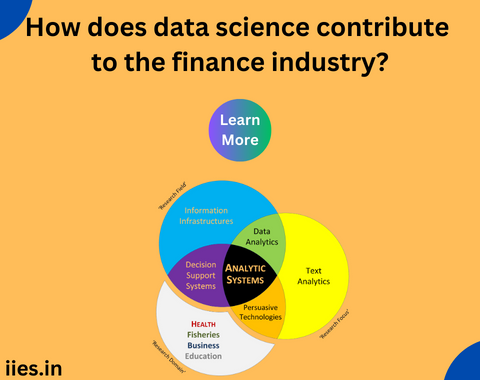These models analyze historical data, market trends, and various external factors to identify patterns that may indicate potential risks. Additionally, data science plays a crucial role in fraud detection, employing anomaly detection algorithms to flag suspicious transactions and activities.
Credit Scoring and Lending Decisions
Traditional credit scoring methods often fall short in capturing the full picture of an individual’s creditworthiness. Data science has revolutionized the lending landscape by incorporating a broader range of variables into credit scoring models. Machine learning algorithms analyze diverse data sources, including social media activity, online behavior, and even non-traditional financial transactions, providing a more holistic view of an individual’s financial health. This allows financial institutions to make more informed lending decisions, extending credit to individuals who may have been overlooked by traditional models.
Algorithmic Trading and Investment Strategies
Data science has significantly impacted the realm of algorithmic trading, enabling financial institutions to develop sophisticated trading strategies based on data-driven insights. Machine learning algorithms analyze historical market data, identifying patterns and trends that are difficult for human traders to discern. This data-driven approach enhances the speed and precision of trading decisions, optimizing portfolio performance. Quantitative analysts and data scientists collaborate to develop models that can adapt to changing market conditions, providing a competitive edge in the fast-paced world of finance.
Customer Insights and Personalization
Understanding customer behavior is paramount in the finance industry, and data science plays a pivotal role in this regard. By analyzing customer transaction data, online interactions, and feedback, financial institutions can gain valuable insights into customer preferences, needs, and behaviors. This information can be leveraged to personalize services, recommend tailored financial products, and enhance overall customer satisfaction. Data-driven personalization not only improves customer experience but also fosters customer loyalty, a crucial factor in an industry where trust is paramount.
Regulatory Compliance and Reporting
The finance industry operates in a highly regulated environment, and compliance with ever-evolving regulations is a constant challenge. Data science streamlines the process of regulatory compliance by automating the analysis of vast datasets to ensure adherence to reporting requirements. Advanced analytics and machine learning algorithms assist financial institutions in identifying potential compliance issues proactively, minimizing the risk of regulatory penalties. This not only enhances efficiency but also reduces the burden on compliance teams, allowing them to focus on more strategic tasks.
Market and Economic Forecasting
Predicting market trends and economic shifts is inherently challenging, but data science provides powerful tools to navigate this complexity. Financial institutions use predictive modeling and machine learning algorithms to analyze economic indicators, geopolitical events, and market data to forecast trends and make informed investment decisions. These models can adapt to changing conditions, providing a dynamic and data-driven approach to market forecasting that goes beyond traditional methods.
Cybersecurity and Data Protection
With the increasing digitization of financial transactions, the threat landscape for cyberattacks has expanded exponentially. Data science plays a crucial role in fortifying cybersecurity measures within the finance industry. Machine learning algorithms are employed to detect and prevent unauthorized access, identify potential vulnerabilities, and analyze patterns indicative of malicious activities. By continuously evolving and adapting to emerging threats, data science helps safeguard sensitive financial data and ensures the integrity of digital transactions, reinforcing trust in the financial system.
Portfolio Optimization and Asset Management
Data science empowers asset managers with tools to optimize investment portfolios and make data-driven decisions. Through the analysis of historical performance, market trends, and various economic indicators, machine learning algorithms can identify optimal asset allocation strategies. This not only enhances returns but also helps manage risks more effectively. The ability to process vast amounts of data in real-time allows asset managers to adjust portfolios swiftly in response to changing market conditions, maximizing investment efficiency.
Operational Efficiency and Cost Reduction
Data science contributes significantly to improving operational efficiency and reducing costs in the finance industry. Automation of routine tasks, process optimization, and predictive maintenance based on data analytics help streamline operations. By identifying inefficiencies and bottlenecks, financial institutions can allocate resources more effectively, reducing unnecessary costs. Additionally, data-driven insights can aid in resource planning and decision-making, ensuring that financial organizations operate more efficiently and profitably.

